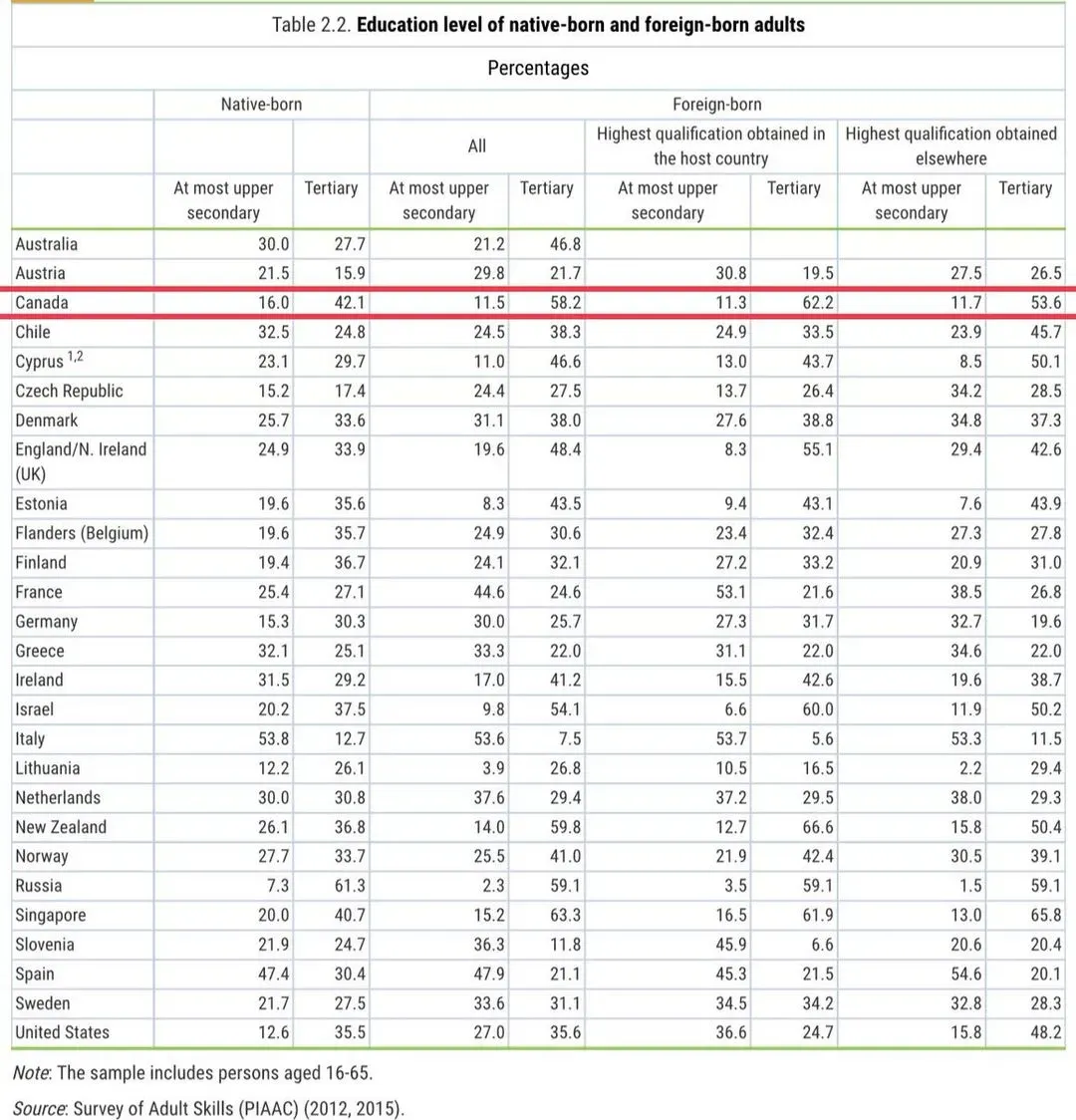On the contrasting immigrant experiences in Canada and Germany

Challanges and opportunities for integration and policy reform
Recent studies have shown that immigrants to Canada exhibit exceptional levels of education. While 42% of native-born Canadians have a higher education degree, 53-62% of immigrants have obtained higher education degrees.
Germany's situation is different. According to a recent international ranking, Germany has been ranked at the bottom regarding the ease of life for newly arriving foreign nationals. The study highlights foreign nationals' barriers and challenges when relocating to Germany.
— Expats in Germany face numerous challenges, especially in the housing category. Many reports that housing is difficult to find and afford, making relocation more of a burden.
— Additionally, 46% of foreign nationals find it challenging to live in Germany without speaking the local language, a higher number compared to the global average of 32%. Moreover, Germans tend to be prejudiced regarding foreigners not speaking the language fluently, particularly at offices.
— A considerable obstacle expatriates face in Germany is the need for digitalisation, which makes many bureaucratic procedures lengthy and cumbersome.
These findings indicate German policymakers (in alphabetical order: BÜNDNIS 90/DIE GRÜNEN, CDU, CSU, FDP, SPD, etc.) must increase efforts to support and integrate foreign nationals relocating to Germany.
In summary, immigration regulations based on the Canadian model, English as a second official language, better digitalisation, less bureaucracy and improvement in housing.

Sources:
